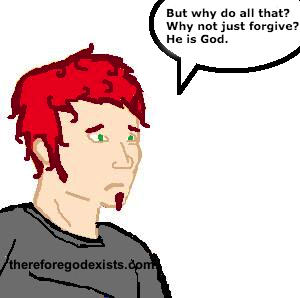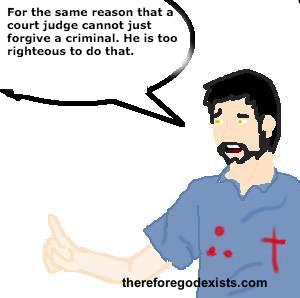 It can be difficult for us to represent other religions properly. If a Christian pastor were representing Islamic thought, and I did not know or recognize this man as a reputable source, I would assume that he would do a poor job. I would be suspicious that his presentation would be full of misrepresentations, and then his audience would walk away from the presentation thinking that they had heard an accurate representation of Islam. When they encountered Muslims, they would bring up these misrepresentations, and the two parties would be talking past each other because the Christian was representing a view that the Muslim did not believe in. Similarly, Muslims can sometimes be equally as guilty of this. To help my Christian readers to see the perspective that they bring to the conversation and to provide understanding for my Muslims readers, I would like to point out 7 misunderstandings Muslims have of Christianity.
It can be difficult for us to represent other religions properly. If a Christian pastor were representing Islamic thought, and I did not know or recognize this man as a reputable source, I would assume that he would do a poor job. I would be suspicious that his presentation would be full of misrepresentations, and then his audience would walk away from the presentation thinking that they had heard an accurate representation of Islam. When they encountered Muslims, they would bring up these misrepresentations, and the two parties would be talking past each other because the Christian was representing a view that the Muslim did not believe in. Similarly, Muslims can sometimes be equally as guilty of this. To help my Christian readers to see the perspective that they bring to the conversation and to provide understanding for my Muslims readers, I would like to point out 7 misunderstandings Muslims have of Christianity.
 1 – “How could God die?” The center of the Christian faith is that God became a man in the person of Jesus Christ, and he died. Since Muslims deny that Jesus was God (believing that he was a great prophet), they will object that Jesus could not have been God, because Jesus died, and God could not die. So, how could God die? Well, when the Christian says that God died, we do not mean that God passed out of existence. Death is a characteristic of biological organisms. Chairs do not die. Dogs die. Human beings die. This means that when we say that God died, we mean that God became a man and died a human death.
1 – “How could God die?” The center of the Christian faith is that God became a man in the person of Jesus Christ, and he died. Since Muslims deny that Jesus was God (believing that he was a great prophet), they will object that Jesus could not have been God, because Jesus died, and God could not die. So, how could God die? Well, when the Christian says that God died, we do not mean that God passed out of existence. Death is a characteristic of biological organisms. Chairs do not die. Dogs die. Human beings die. This means that when we say that God died, we mean that God became a man and died a human death.
 But that does not mean that God passed out of existence. It means that God endured a human death. Just think of mortality of human beings and the afterlife that both Christians and Muslims alike believe in. When we die, our souls or spirits separate from our body until the final resurrection at the end of the world. Since human beings are innately eternal creatures, who will either have their abode with God or separated from his presence (2 Thessalonians 1:9), an equally daunting question could be “How could a human being die? A human being has an eternal soul. How could he die?” But we are not saying that the human being passed out of existence. We are saying that he died a human death. Similarly, God died a human death. Hopefully this resolves or shed a bit of light on this one of the 7 misunderstandings Muslims have of Christianity.
But that does not mean that God passed out of existence. It means that God endured a human death. Just think of mortality of human beings and the afterlife that both Christians and Muslims alike believe in. When we die, our souls or spirits separate from our body until the final resurrection at the end of the world. Since human beings are innately eternal creatures, who will either have their abode with God or separated from his presence (2 Thessalonians 1:9), an equally daunting question could be “How could a human being die? A human being has an eternal soul. How could he die?” But we are not saying that the human being passed out of existence. We are saying that he died a human death. Similarly, God died a human death. Hopefully this resolves or shed a bit of light on this one of the 7 misunderstandings Muslims have of Christianity.
 2 – “God does not need the cross. He can just forgive.” God is holy. We are sinners. God cannot have injustice in his sight. We are unjust. God cannot and will not stand for lawlessness. We are lawless. That is why we need redemption. We stand separated from a holy God. The second person of the Trinity, God the Son, took on a human nature and lived in impeccable moral repute. When he was murdered, he absorbed the penalty that we deserve for our sin (Romans 3:21-25). He died in our place, for the sins of his people (Isaiah 53:10). All of the crimes that we committed were reckoned to Christ’s account, and the Father punished him for them (Colossians 2:14). Jesus died in our place, for our sins, and three days later, he rose from the dead. God provided a perfect sacrifice for our sins.
2 – “God does not need the cross. He can just forgive.” God is holy. We are sinners. God cannot have injustice in his sight. We are unjust. God cannot and will not stand for lawlessness. We are lawless. That is why we need redemption. We stand separated from a holy God. The second person of the Trinity, God the Son, took on a human nature and lived in impeccable moral repute. When he was murdered, he absorbed the penalty that we deserve for our sin (Romans 3:21-25). He died in our place, for the sins of his people (Isaiah 53:10). All of the crimes that we committed were reckoned to Christ’s account, and the Father punished him for them (Colossians 2:14). Jesus died in our place, for our sins, and three days later, he rose from the dead. God provided a perfect sacrifice for our sins.
 Muslims will charge that this atonement is superfluous. God does not need to provide a perfect sacrifice. He does not need to die for our sins. He is God, and he can just forgive people as he pleases. Well, I am reminded of what is known as Euthyphro’s Dilemma. Is some action righteous because God decreed that it was so, or did God decree that it was righteous because he recognized the inherent righteousness of a certain act? Can God arbitrarily declare something that is unrighteous, to be righteous? The reason that God cannot just forgive is because he is perfectly righteous – he is righteousness and he cannot stand sin in his right. If he were to just forgive, arbitrarily, he would impugn his righteousness. It is not that he has to obey rules. It is that he is a righteous judge and he will not wink at sin. Just as a court judge could not arbitrarily let a guilty man go, so also God cannot arbitrarily let a guilty sinner go. His justice must be enacted. That is why the cross is necessary.
Muslims will charge that this atonement is superfluous. God does not need to provide a perfect sacrifice. He does not need to die for our sins. He is God, and he can just forgive people as he pleases. Well, I am reminded of what is known as Euthyphro’s Dilemma. Is some action righteous because God decreed that it was so, or did God decree that it was righteous because he recognized the inherent righteousness of a certain act? Can God arbitrarily declare something that is unrighteous, to be righteous? The reason that God cannot just forgive is because he is perfectly righteous – he is righteousness and he cannot stand sin in his right. If he were to just forgive, arbitrarily, he would impugn his righteousness. It is not that he has to obey rules. It is that he is a righteous judge and he will not wink at sin. Just as a court judge could not arbitrarily let a guilty man go, so also God cannot arbitrarily let a guilty sinner go. His justice must be enacted. That is why the cross is necessary.
 3 – “Jesus never said, ‘I am God. Worship me.'” As I pointed out, Muslims do not believe that Jesus is God, and believe that it would have been blasphemy for him to claim to be God. So they will grant the four gospels and say that Jesus never said, ‘I am God. Worship me.’ First, we need to allow for literary artistry and allow the authors of the gospel to speak and communicate their message. The authors of the gospels often wanted you to read them and think, “Who is this man?” So they would grant subtle hints, where Jesus would attribute actions of God in the Old Testament to himself (Matthew 11:5). They would grant a portrayal of the disciples worshipping this divine figure, the Son (Matthew 14:33). After all of these questions and hints, they would end the narrative, just before the crucifixion, with Jesus’ claim before the Sanhedrin, where he claimed, “I am, and you shall see the Son of Man sitting at the right hand of power, and coming with the clouds of Heaven” to which the High Priest rips his garment and accuses Jesus of blasphemy. So this is one of 7 misunderstandings Muslims have of Christianity. While he never said, ‘I am God. Worship me’ he uttered equally potent phrases.
3 – “Jesus never said, ‘I am God. Worship me.'” As I pointed out, Muslims do not believe that Jesus is God, and believe that it would have been blasphemy for him to claim to be God. So they will grant the four gospels and say that Jesus never said, ‘I am God. Worship me.’ First, we need to allow for literary artistry and allow the authors of the gospel to speak and communicate their message. The authors of the gospels often wanted you to read them and think, “Who is this man?” So they would grant subtle hints, where Jesus would attribute actions of God in the Old Testament to himself (Matthew 11:5). They would grant a portrayal of the disciples worshipping this divine figure, the Son (Matthew 14:33). After all of these questions and hints, they would end the narrative, just before the crucifixion, with Jesus’ claim before the Sanhedrin, where he claimed, “I am, and you shall see the Son of Man sitting at the right hand of power, and coming with the clouds of Heaven” to which the High Priest rips his garment and accuses Jesus of blasphemy. So this is one of 7 misunderstandings Muslims have of Christianity. While he never said, ‘I am God. Worship me’ he uttered equally potent phrases.
Second, if Jesus never claimed to be God, and if he was truly an Islamic prophet, then his message was instantly corrupted by the almighty apostle Paul and the following Christian voices. While God sent this prophet to teach the world to follow Islam, his plan backfired, because immediately after his prophet died, everybody started revering him as God and developing these feign traditions, leaving literally no trace of the true prophet until 700 years later. Is that the most plausible account of the life of Jesus? Do we have to believe that God’s message was stomped out?
4 – “The gospel of John is too old to be trusted.” You will notice that when pointing out where Jesus claimed to be God, I did not appeal to the gospel of John, and why not? The most obvious references are there. Jesus said that he and the Father are one (John 10:30) and when you have seen him, you have seen the Father (John 14:9). These seem obvious. John is clearly not asking “Who is this man?” He made a point to tell you in plain words who this man is. So why not use it? Many Muslims will deny that John’s gospel is authoritative. It was written too late to be an accurate account of the life of Jesus.
Well, the reason that the gospel of John is dated so late is that the literary style seems to be influenced by gnosticism (not to say that it is a gnostic writing, obviously). But the Dead Sea Scrolls had writings that adopted the literary style which we find in the Gospel of John. That would indicate that we do not necessarily need a late date to account for this literary style. Second, the longer speeches that are recorded in the gospel of John may be indicative that this is the true voice of Jesus. In the synoptics, he would just tell a parable, a pithy saying. They are abridged. But in the gospel of John, we have a larger treatment of what Jesus said. This could be accounted for by the fact that it was written by an eye-witness who wanted to capture the true voice of Jesus. Therefore suggesting that the gospel of John is unreliable seems to be one of the 7 misunderstandings Muslims have of Christianity.
5 – “Jesus did not die on the cross. Somebody died in his place.” All of the evidence coming out of the first century invariably suggests that Jesus died on the cross. First, the crucifixion was embarrassing to the disciples of Jesus. It was something that they needed to explain, because ‘Cursed is the man who dies on a tree’ (Galatians 3:13). It is not a story that somebody would invent. That is why the atheist New Testament scholar, Dr. Gerd Ludemann wrote, “Jesus’ death, as a consequence of crucifixion, is historically undeniable.” Yet Muslims deny it and suggest that somebody else died in his place.
Now, when dealing with a historical hypothesis, we need to recognize that much of what is said is highly probabilistic. We cannot expect absolute certainty. It is inductive. This means that there will always be away to circumvent the evidence. We can always conjure up alternative stories. But if they are not derived from the historical evidence, they are ad hoc and contrived. When the Muslim hypothesizes that somebody was crucified in the place of Jesus, they are not drawing this from the evidence coming out of the first century. It is an ad hoc, contrived, historical hypothesis that is meant to circumvent the evidence. Therefore to say that Jesus did not really die by crucifixion is one of 7 misunderstandings that Muslims have of Christianity.
Further (and this touches a bit on the philosophical implications of Islamic theology), Muslim theologians throughout the centuries have supposed that God made it appear to everybody that Jesus died by crucifixion by putting somebody else in his place and putting Jesus’ face on that man. However, this would seem to indicate that God tricked people into becoming Christians. But what sort of plan is this? I think that Muslims should rethink their hypothesis regarding the death of Jesus. Even Qur’an leaves the door open. It reads, “And because of their saying: We [the Jews] slew the Messiah, Jesus son of Mary, Allah’s messenger – they slew him not nor crucified him, but it appeared so unto them.” Of course, nobody believes that the Jews slew the Messiah. The Romans did. So even believing the Qur’an, on could believe in the crucifixion.
6 – “Paul corrupted Jesus’ message by implementing this doctrine of ‘faith alone.'” Justification by faith alone is the doctrine that by believing in the promises of God, the same promise that he made to Abraham, believing that they are applied to us, putting our trust in him that he will be faithful to fulfill those promises on the basis Christ crucified – we are justified before God. We stand before him as though we had never sinned. Romans 3-5 firmly establishes this doctrine in Christian thought, as Paul tells us, “To the one who does not work, but believes in him who justifies the ungodly, his faith is credited as righteousness.” (Romans 4:5). To this, Muslims object that Jesus did not teach this doctrine of faith alone. This is a Pauline corruption. For Jesus taught that we ought to keep the Law (Matthew 5:17).
Well, Paul taught that we ought to keep the Law as well (Romans 7:12). But he did not teach that keeping the Law was a mechanism for justification, and neither did Jesus. Jesus and Paul agreed that we need to keep the Law. They agreed that we need to live righteous lives, and they agreed that justification comes by faith alone. As I pointed out in my article, Did Jesus Teach Salvation By Faith Alone?, he taught the impossibility of keeping the commandments. When he encountered the rich young ruler (Mark 10:17-27), he told him that if he wanted to see life, he needed to keep the commandments. But, when he listed the daunting commandments, the man realized that he could not measure up. So, Jesus said that it was so hard to enter the kingdom of heaven. It is harder than a camel going through the eye of a needle. This astonished the disciples, and they asked, “Who then can be saved?” to which Jesus replied, “By man it is impossible. But with God, all things are possible.” Jesus taught that in and of our own resources, we could not earn salvation. We need to trust in God’s mercy, and that is how we attain it. So one of 7 misunderstandings that Muslims have of Christianity is to suggest that Jesus did not teach justification by faith alone.
7 – “Western ethics represent Christianity.” While many western Muslims find themselves assimilating with western values and culture, they still recognize the immorality and selfish gain that is inherent in our culture. Since these are Christian nations, they will blame Christianity for this corruption. However, I would argue that nations would be corrupt no matter what religion is implemented. Just think of the Old Testament. God personally established this religion (Judaism) and it was always corrupted by the wicked hearts of men (Jeremiah 17:9). That is what Jesus was correcting. Further, a bankrupt moral system in the west can be paralleled by what we see in the middle east in the terror groups waging war in the Islamic majority nations. This goes to suggest that men are evil enough on their own and they will wield any resource available to them to express the evil in their hearts.
Second, Christianity teaches that we need to live a righteous lifestyle. Paul says that everybody will be judged, that righteous people will be with God (Romans 2:6-8). He writes in Romans 6:2, “We are those who have died to sin; how can we live in it any longer?” Paul combatted the very objections to Christianity that we hear today. If justification is by faith alone, does that mean that we can sin freely? Of course not, argues Paul. We have been born again. We have been made new. We have been granted new life by the power of God. The corruption of western ethics does not represent Christianity. This seems to be one of 7 misunderstandings Muslims have of Christianity.
If you would like to get in on the discussion about this, like my Facebook page!